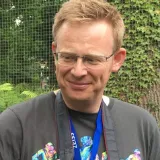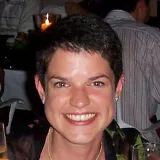"Our Bioimaging Technology Development Awards bring together researchers with technology developers to answer ambitious research questions. We’re excited to see where these collaborations lead and the new techniques they develop that will make bioimaging research accessible around the world."
Luigi Martino, Research Lead in Discovery Research at Wellcome
17 December 2024
£1m funding awarded to create revolutionary bioimaging tools
King’s Professors Maddy Parsons and Simon Ameer-Beg have each been awarded £500,000 seed funding by Wellcome to develop cutting-edge bioimaging tools to study how cells and the tissue work.

The Bioimaging Technology Development Awards 2024 funds teams that are attempting to develop technologies that answer ambitious research questions or that overcome barriers to bioimaging in low-resource settings.
The seed funding will support the projects for 1.5 years during the ‘foundation’ phase. However, after a year, Professors Parsons and Ameer-Beg will be invited to apply for additional funding that will support them for a maximum of 6.5 years during the ‘scale up’ phase.
Bioimaging technology refers to the methods and tools used to take pictures or create visual representations of living organisms, tissues or cells to study their structure and function. For example, MRI (Magnetic Resonance Imaging) machines, which are used to create detailed images of organs and tissues inside the body, and ultrasound, which uses waves to look at soft tissues like a baby in the womb.
Professor Parsons will use cutting-edge technology and expertise from multiple imaging domains to provide a full picture of the biological content of tissues across multiple diseases. By combining advanced imaging techniques with data from live and preserved tissues, the group will explore everything from cell interactions and metabolism to gene activity and protein organisation. Powerful computational tools will help them piece this data together to better understand how diseases develop and identify new ways to treat them. She is also Co-Investigator on another funded project led by Professor Jason Swedlow from the University of Dundee that will develop new ways to combine, mine and share these vast multimodal datasets.
Professor Ameer-Beg will lead a team to develop three novel microscope platforms using advanced SPAD sensor technologies and harness artificial intelligence, to study metabolism in the cells and tissues in unprecedented detail. The group will explore how cells and tissues function across different scales – from the nanoscale inside mitochondria to larger tissue structures of the brain. These tools will help answer questions about how cells in the brain communicate, how cancer cells respond to treatments, and how normal and diseased cells differ.
Ultimately, this research hopes to gain a deeper understanding of biology and potential new ways to fight diseases like cancer and neurological disorders.
Luigi Martino, Research Lead in Discovery Research at Wellcome, said: "Innovations in bioimaging technology, from cell atlases, neural mapping to data handling, are essential to discovery research and ultimately to enhance our understanding of health and wellbeing."


